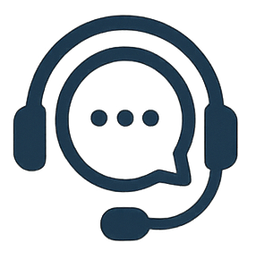In the rapidly evolving landscape of healthcare, customer experience has emerged as a critical differentiator. The expectations placed upon healthcare providers will further intensify, underscoring the importance of optimizing customer experiences. With advancements in technology and heightened consumer awareness, healthcare providers must navigate these trends skillfully to thrive. This post delves into the benchmarks defining customer experience within the healthcare industry, offering insights into what organizations should prioritize to deliver exceptional service.
Understanding Customer Experience in Healthcare
Customer experience in healthcare encompasses every interaction a patient has with a facility, from appointment scheduling to follow-ups after treatment. It is shaped by convenience, empathy, communication, and the personalization of services. For healthcare providers, understanding these components is pivotal to meeting and exceeding patient expectations.
Customer experience in healthcare is expected to prioritize digital innovations. Telehealth services, personalized communication through AI, and streamlined processes via electronic health records (EHRs) will become standard. These technologies foster seamless interactions and ensure that patients feel valued and understood.
The Role of Technology in Elevating Customer Experience
Technology will play a transformative role in shaping customer experiences. Telemedicine, which saw a massive surge during the COVID-19 pandemic, continues to be integral. It allows patients to access healthcare services from the comfort of their homes, which not only increases convenience but also reduces operational burdens on healthcare facilities.
Additionally, Artificial Intelligence (AI) tools are employed to provide personalized care recommendations and predictive health insights. AI chatbots will become commonplace, offering immediate assistance and triaging concerns to appropriate healthcare professionals. This efficient interface ensures that patient queries are addressed promptly, enhancing overall satisfaction.
Empathy and Human Touch in a Digital World
While technology facilitates many aspects of healthcare, the human touch remains irreplaceable. Empathy is a crucial aspect of the customer experience, especially in healthcare, where emotions are often heightened. By 2025, successful healthcare providers will blend technological efficiencies with empathetic human interaction.
Training healthcare professionals in communication skills and empathy will be paramount. For instance, virtual consultations should not only focus on ease but also ensure that patients feel heard and understood. Acknowledging patients' emotional and physical concerns will foster trust and loyalty in healthcare relationships.

Measuring Customer Experience Benchmarks
For healthcare providers, measuring the success of customer experience strategies is essential to continuous improvement. Benchmarks commonly used include patient satisfaction scores, net promoter scores (NPS), and digital engagement metrics.
Improving patient satisfaction scores requires targeted feedback systems, such as post-visit surveys. These tools can provide actionable insights to refine service offerings. Moreover, the adoption of customer relationship management (CRM) systems tailored for healthcare environments will enable providers to analyze and respond to patient feedback effectively.
Strategies : Enhancing Customer Experiences
To meet the anticipated benchmarks of 2025, healthcare providers must prioritize several strategies. Firstly, investing in comprehensive digital platforms that integrate EHRs, telemedicine services, and patient portals is crucial. These platforms should be user-friendly and accessible, promoting continuous patient engagement.
Next, focusing on data privacy and security is vital as digital healthcare expands. Patients must trust that their health information is secure, bolstering their confidence in utilizing digital health services.
Finally, healthcare organizations should foster a culture of continuous learning and adaptation. Regular training on the latest technologies and empathy in patient interactions will prepare healthcare workers to deliver superior customer experiences consistently.
Conclusion
As healthcare steadily progresses towards 2025, the benchmarks for customer experience continue to evolve. By strategically integrating technology with empathetic care and robust measurement tools, healthcare providers can offer superior customer experiences that meet modern expectations. Emphasizing both digital advancement and the human touch will be key to thriving in an increasingly competitive landscape. Providers who can adapt to these benchmarks will not only improve patient satisfaction but also set new standards for excellence in healthcare delivery.








